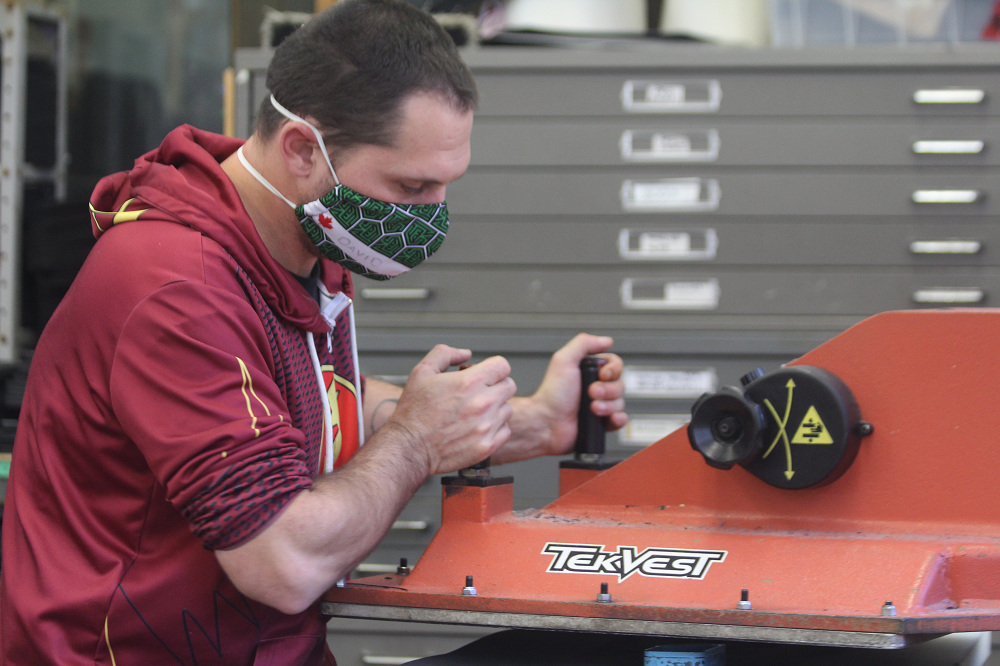Tekrider TekVest owner Steve Brand answered the call to a province needing medical gear at the start of the pandemic, transitioning from high-end recreational clothing to personal protective equipment (PPE).
The move was costly during a pandemic – Brand said he took out a second mortgage on his home and business in addition to a $40,000 small business loan from the federal government. But with advocacy from the County and the province expediting the licencing process, he was successfully able to start producing equipment, including medical gowns and non-medical masks, in early April. A recent one-time order for 12,000 reusable medical gowns from the provincial government helped further sustain the business and allowed it to buy more equipment. As orders came in, Tekrider expanded from nine to 26 employees, with the possibility of hiring more.
“We did it on our own,” Brand said. “It was the right thing to do.”
But all of that is up-in-the-air with the end of the order, with Tekrider’s last shipment going Sept. 18. Brand said they hoped for an extended contract, but it never happened. With thin margins, he said there is a good chance he will have to cut a lot of the staff he hired to produce more PPE.
“We’re collectively disappointed at the lack of leadership on the part of the government,” Brand said. “Doug Ford says he stands up for the little guy, well clearly that’s not the case.”
Ministry of Government and Consumer Services spokesperson Barbara Hanson said the contract was a one-time purchase order.
“Our efforts, and those of local companies, were a great success with Ontario holding sufficient stock of reusable gowns,” Hanson said.
The province has invested millions in recent months to improve PPE manufacturing supply, such as $23.3 for the 3M plant in Brockville for N95 respirators and $1.8 million at Southmedic in Barrie for oxygen masks and face shields.
TekRider director of community outreach Lisa Schmidt said it is not about growing the company, but helping more people get by.
“It’s to keep a community going,” Schmidt said. “This is not one of the economically most advantageous parts of the province… It’s not like we’re looking for a handout. It would be great to have the orders continue knowing COVID isn’t going away.”
“I could have had an immediate increase of 10 (employees),” Brand said. “But now I may have to reduce in the opposite direction.”
Schmidt said although the government’s move may be cost-saving, keeping local businesses going helps keep people employed and off government assistance.
“There are many parts of the province that are really working hard to build up their local communities. Steve is an example of what that looks like,” she said. “They’re not making a profit on any of these gowns – basically the whole point was to keep people employed.”
With a long history in the military and peacekeeping, including a tour in Afghanistan, Brand said he used to governments acting slowly. In contrast, he said he was appreciative of just how quickly governments moved in April to ensure he and other businesses could pivot to making PPE.
“The government did move very quickly,” Brand said. “Things have changed. I give the government – both levels – high marks in the initial three-to-four months, but failing grades now. Because they’re focused on bigger issues, bigger people etcetera, etcetera, and they’ve forgotten the little guys.”





